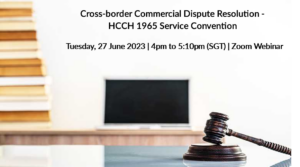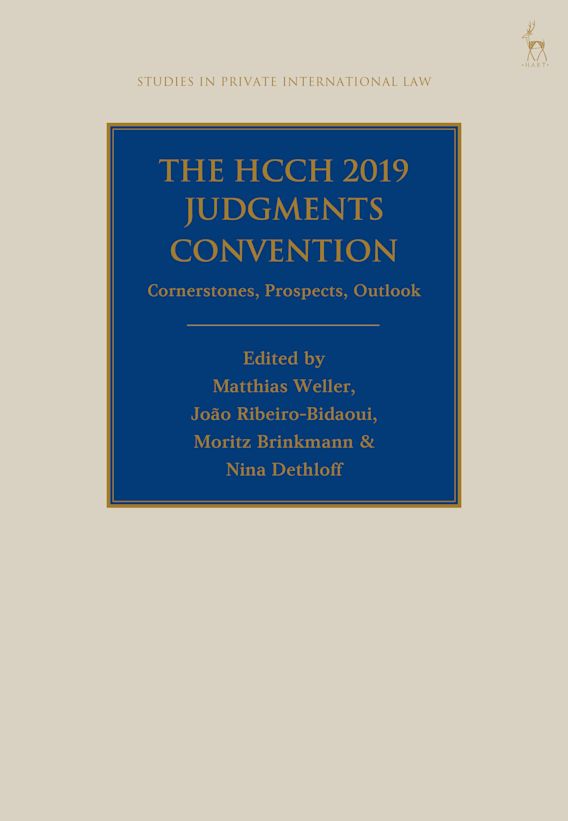Views
The Supreme Court deals the death blow to US Human Rights Litigation
Written by Bastian Brunk, research assistant and doctoral student at the Institute for Comparative and Private International Law at the University of Freiburg (Germany)
On April 24, the Supreme Court of the United States released its decision in Jesner v Arab Bank (available here; see also the pre-decision analysis by Hannah Dittmers linked here and first thoughts after the decision of Amy Howe here) and, in a 5:4 majority vote, shut the door that it had left ajar in its Kiobel decision. Both cases are concerned with the question whether private corporations may be sued under the Alien Tort Statute (ATS). Read more
No handshake, no citizenship – but with a second wife, everything’s fine?
Two recent judgments of European courts have highlighted the difficulty in finding the right balance between the cultural assimilation of Muslim immigrants demanded by national laws on citizenship and the necessary degree of tolerance towards foreign laws and customs. In a widely reported decision of 11 April 2018, the French Council of State (Conseil d’Etat) ruled that a naturalisation of an Algerian-born woman could be revoked because she had refused to shake hands with a male public servant during the naturalisation ceremony. Read more
Child Abduction and Habitual Residence in the Supreme Court of Canada
The Supreme Court of Canada, in Office of the Children’s Lawyer v Balev (available here), has evolved the law in Canada on the meaning of a child’s habitual residence under Article 3 of the Hague Convention. The Convention deals with the return of children wrongfully removed from the jurisdiction of their habitual residence.
A majority of the court identifies [paras 4 and 39ff] three possible approaches to habitual residence: the parental intention approach, the child-centred approach, and the hybrid approach. The parental intention approach determines the habitual residence of a child by the intention of the parents with the right to determine where the child lives. This approach has been the dominant one in Canada. In contrast, the hybrid approach, instead of focusing primarily on either parental intention or the child’s acclimatization, looks to all relevant considerations arising from the facts of the case. A majority of the court, led by the (now retired) Chief Justice, holds that the law in Canada should be the hybrid approach [paras 5 and 48]. One of the main reasons for the change is that the hybrid approach is used in many other Hague Convention countries [paras 49-50].
The dissent (three of the nine judges) would maintain the parental intention approach [para 110]. One of its central concerns is the flexibility and ambiguity of the hybrid approach [para 111], which the judges worry will lead to less clarity and more litigation. Wrongful removal cases will become harder to resolve in a timely manner [paras 151-153].
The majority did not apply the law to the facts of the underlying case, it having become moot during the process of the litigation [para 6]. The court rendered its decision to provide guidance going forward. The dissent would have denied the appeal on the basis that the child’s habitual residence was in Germany (as the lower courts had held).
The court briefly addresses the exception to Article 3 in what is commonly known as “Article 13(2)” (since it is not numbered as such) – a child’s objection to return – setting out its understanding of how to apply it [paras 75-81 and 157-160].
The Supreme Court of Canada has recently adopted the practice of preparing summaries of its decisions (available here for this decision) to make them more accessible to the media and the public. These are called “Cases in Brief”.
News
ABLI-HCCH webinar: Cross-border Commercial Dispute Resolution – HCCH 1965 Service Convention (27 June 2023)

Following successful collaborations in 2021 and 2022, the Asian Business Law Institute (ABLI) and the Permanent Bureau of the Hague Conference on Private International Law (HCCH) are teaming up again for their third joint webinar this year on Tuesday 27 June between 4 to 5:10pm (Singapore time) or 10 to 11:10am (CEST).
Titled Cross-border Commercial Dispute Resolution – HCCH 1965 Service Convention, the webinar is expected to discuss, among others, the operation of the Service Convention in practice, how the Service Convention works with the other HCCH Conventions for cross-border dispute resolution, and Singapore’s accession to and upcoming implementation of the Service Convention.
Invited speakers include Sara Chisholm-Batten (Partner, Michelmores LLP), Melissa Ford (Secretary, HCCH), Delphia Lim (2Director, International Legal Division, Ministry of Law, Singapore), Professor Yeo Tiong Min (Singapore Management University), and Professor Yun Zhao (University of Hong Kong and Representative of Regional Office for Asia and the Pacific, HCCH).
For more information or to register, click here. Early bird discount is available till 28 May.
More about the webinar and its speakers can be found in the flyer.
Queries about the webinar can be directed to ABLI at info@abli.asia.
Milan Arbitration Week – 2023 edition
From 22 to 27 May 2023, the 2023 edition of the Milan Arbitration Week will take place, online and in presence. It encompasses a series of events dedicated to domestic, international commercial and investment arbitration, with the participation of renowned Italian and foreign experts from academia and legal profession.
The Milan Arbitration Week is jointly organized by Università degli Studi di Milano and the European Court of Arbitration, in collaboration with DLA Piper-Milan, Comitato Italiano dell’Arbitrato, the Centre of Research DEuTraDiS and the Erasmus + Programme of the European Union.
In particular, this edition will focus on the recent Italian reform of arbitration law; the mechanism of the mandatory mediation; the status quo and future perspectives of surfing on pledges in international arbitration; the umbrella clauses; the recent developments of the relationships between EU Law and investment arbitration. In addition, the MiAW, always attentive to the relationship between university education and arbitration, will host a chat with the winners of the 30th edition of the Willem C. Vis International Commercial Arbitration Moot, as well as the Frankfurt Investment Pre-Moot (Conference and hearings), organized by DLA Piper, Milan.
All information (including how to register) can be found at this link.
The HCCH 2019 Judgments Convention: Cornerstones, Prospects, Outlook

Hart Studies in Private International Law officially released a book today titled: The HCCH 2019 Judgments Convention: Cornerstones, Prospects, Outlook. The book is edited by M Weller et al. The blurb reads as follows:
This book analyses, comments and further develops on the most important instrument of the Hague Conference on Private International Law (HCCH): the HCCH 2019 Judgments Convention. The HCCH Convention, the product of decades of work, will have a transformative effect on global judicial cooperation in civil matters. This book explores its ‘mechanics’, i.e. the legal cornerstones of the new Convention (Part I), its prospects in leading regions of the world (Part II), and offers an overview and comment on its outlook (Part III). Drawing on contributions from world-leading experts, this magisterial and ambitious work will become the reference work for law-makers, judges, lawyers and scholars in the field of private international law.


